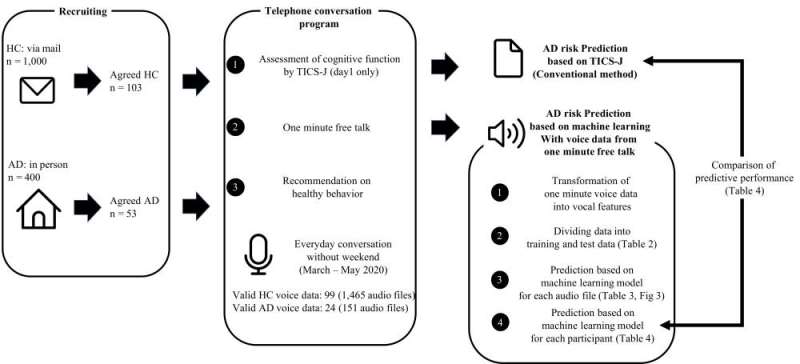
Researchers working at the Department of Public Health, McCann Healthcare Worldwide Japan Inc., has created three algorithms that can be used to detect Alzheimer’s in patients as they engage in phone conversations. The group has written a paper outlining the algorithms and their effectiveness and have uploaded it to the open-access site PLOS ONE.
Despite world-wide efforts, there still is no cure for Alzheimer’s disease, which impacts millions of people around the globe including approximately 5.8 million in the United States. Medical researchers have made inroads towards slowing its progression, however; which is why it is becoming more and more important to identify the disease early. Thus scientists have turned their attention to finding new ways to predict which people will get the disease. In this new effort, the researchers have turned to machine learning as an aid to diagnoses.
Prior research has shown that some of the early signs of Alzheimer’s include speaking more slowly than normal and pausing more often during conversations. Some work is already being done to recognize such speech difficulties—one project by a team in Japan uses the Telephone Interview for Cognitive Status (TICS-J) test, where phone conversations are recorded and studied to see if there is slow or broken speech. In this new study, the researchers have replaced the humans listening and analyzing phone conversations with a computer running a machine-learning algorithm.
Source: Read Full Article
